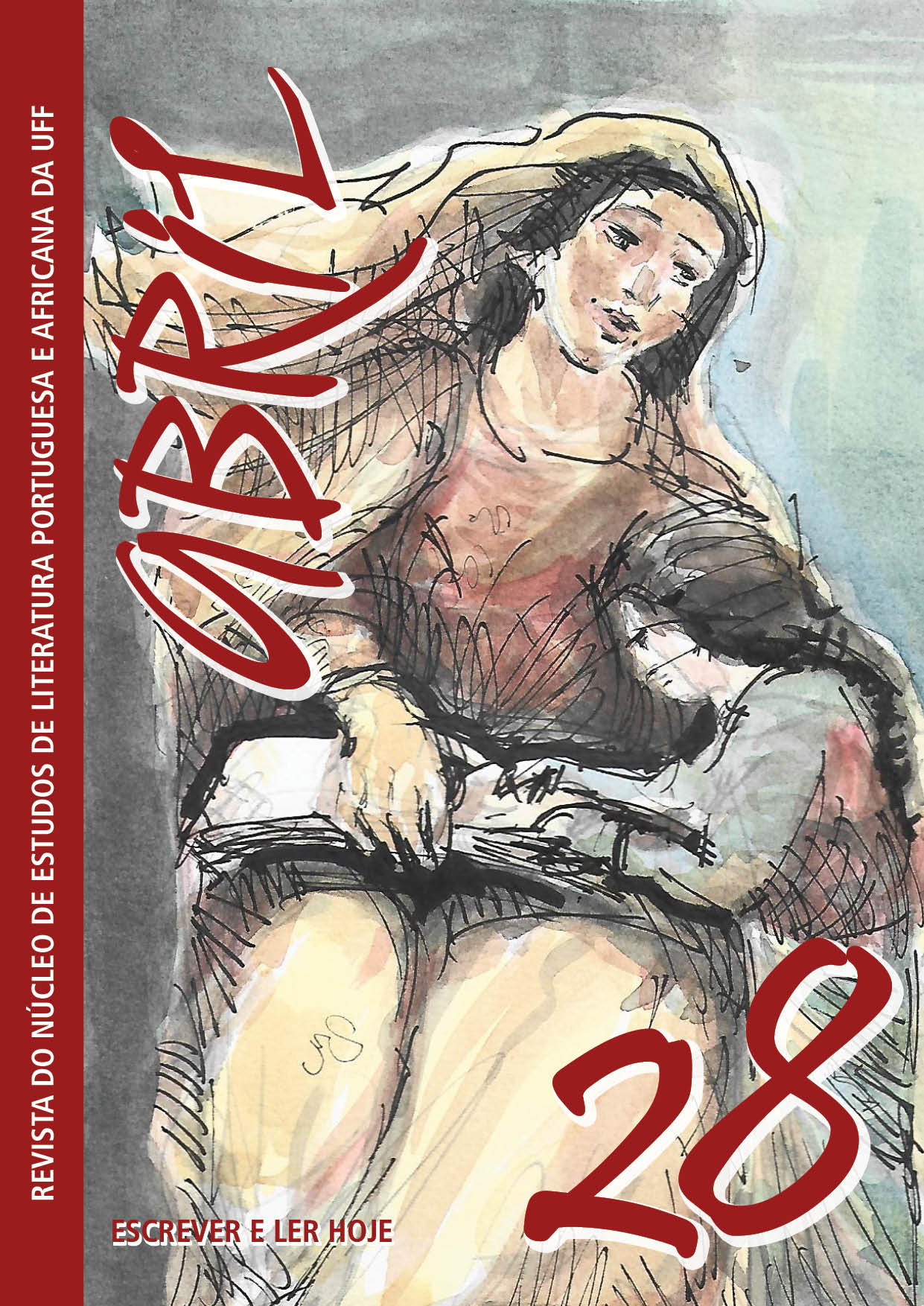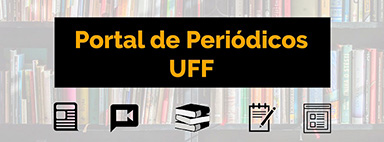A escrita feminina n’O Texto-Catarina
DOI:
https://doi.org/10.22409/abriluff.v14i28.52754Palavras-chave:
Escrita feminina, Feminino de ninguém, CartaResumo
O artigo propõe uma leitura de O Texto-Catarina, de Maria Gabriela Llansol, a partir dos pressupostos acerca da “escrita feminina”, de Lucia Castello Branco, articulados à figura llansoliana do “feminino de ninguém” e ao operador de mesmo nome, desenvolvido por Lucia Castello Branco, com base na figura llansoliana, com ressonâncias da teoria psicanalítica sobre a letra e o feminino. Busca-se investigar ainda a articulação de “feminino de ninguém” com o que Llansol teria sugerido na Carta ao Legente (2000), ao escrever: “Finalmente, eu passei apenas pela escrita. Palavra feminina como eu”. Levando em conta, segundo palavras da própria autora, que “um eu é pouco para o que está em causa”, arriscamo-nos na hipótese de que O Texto- -Catarina avança em direção ao que poderíamos chamar, com Llansol, de “escrita feminina de ninguém”. Espera-se, assim, numa leitura de Llansol e com Llansol, produzir um efeito de “sobreimpressão”, em que a relação entre afecção, imagem e pensamento se dê a ver num gesto textual ofertado também para Llansol, em reciprocidade ao que ela realiza na carta de 4 de julho de 1998, “para Lúcia Castello-Branco, e seus alunos”.
Downloads
Referências
BRA NCO, Lucia Castello. O que é escrita feminina. São Paulo: Brasiliense, 1991.
BRA NCO, Lucia Castello. A traição de Penélope: a escrita feminina da memória. São Paulo: AnnaBlume, 1994.
BRA NCO, Lucia Castello, BRA NDÃO, Ruth Silviano. A mulher escrita. Rio de Janeiro: Casa Maria Editorial, 1989.
BRANCO, Lucia Castello, PAULA, Janaína de, BAETA, Vania. Feminino de ninguém. Belo Horizonte: Cas’a Edições, 2019.
CARNEIRO, Rebeca Cortês de Paula. O encontro inesperado do diverso: a letra e o amor na escritura de Maria Gabriela Llansol. Belo Horizonte: POSLIT-FALE-UFMG, 1997. [Dissertação de Mestrado em Literatura Comparada. Inédita].
COELHO, Eduardo Prado. O único segredo é entrar: diálogos com o texto de Maria Gabriela Llansol. Lisboa: Mariposa Azual, 2019.
LACAN, Jacques. Escritos. Rio de Janeiro: Zahar, 1998. P. 13-45: O seminário sobre “A carta roubada” [1956].
LLANSOL, Maria Gabriela. Inquérito às quatro confidências. Diário III. Lisboa: Relógio D’Água, 1996.
LLANSOL, Maria Gabriela. O sonho de que temos a linguagem. Revista Colóquio-Letras, Lisboa, Fundação Kalouste Gulbenkian, n. 143-144, janeiro-junho de 1997. P. 5-18.
LLANLOl, Maria . Carta de 17-02, 1997.
LLANSOL, Maria Gabriela. Ardente Texto Joshua. Lisboa: Relógio D’Água, 1998.
LLANSOL, Maria Gabriela. O livro das comunidades. 2 ed. Lisboa: Relógio D’Água, 1999. P. 9-10: Eu leio assim este livro [A. Borges]
LLANSOL, Maria Gabriela. Onde vais, Drama-Poesia? Lisboa: Relógio D’Água, 2000.
LLANSOL, Maria Gabriela. Carta ao Legente. Belo Horizonte: Edições 2 luas, 2000.
LLANSOL, Maria Gabriela. O senhor de Herbais. Lisboa: Relógio D’Água, 2002.
LLANSOL, Maria Gabriela. Um falcão no punho. Diário I. Belo Horizonte:
Autêntica, 2011. [1985]
LLANSOL, Maria Gabriela. A palavra imediata. Livro de Horas IV. Lisboa: Assírio & Alvim, 2014.
LLANSOL, Maria Gabriela. O Texto-Catarina. Lisboa: Sr Teste Edições, 2020.
VIDA L, Eduardo. Letra. [Conferência proferida no Centro Cultural da UFMG, Belo Horizonte, 2015. Transcrição de Janaína de Paula. Texto inédito.]
Downloads
Publicado
Edição
Seção
Licença
Copyright (c) 2022 Abril – NEPA / UFF

Este trabalho está licenciado sob uma licença Creative Commons Attribution-NonCommercial 4.0 International License.
Autorizo a Revista Aabril - NEPA/UFF a publicar o artigo que ora submeto, de minha autoria/responsabilidade, caso seja aceito para publicação online. Declaro, ainda, que esta contribuição é original, que não está sendo submetida a outro editor para publicação, e assino a presente declaração como expressão da verdade.
Os trabalhos publicados no espaço virtual da Revista Abril serão automaticamente cedidos, ficando os seus direitos autorais reservados à Revista Abril. Sua reprodução, total ou parcial, é condicionada à citação dos autores e dos dados da publicação.

A Revista Abril utiliza uma Licença Creative Commons - Atribuição-NãoComercial 4.0 Internacional (CC BY-NC 4.0).









